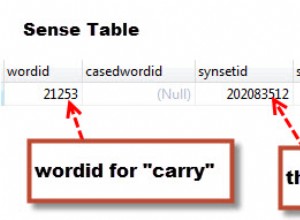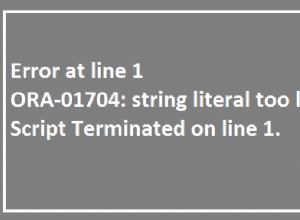Você pode selecionar last_value da sequência, que é criada automaticamente quando você usa o tipo serial:
create table test (
id serial primary key,
parent integer not null,
foreign key (parent) references test(id)
);
insert into test values(default, (select last_value from test_id_seq));
insert into test values(default, (select last_value from test_id_seq));
insert into test values(default, (select last_value from test_id_seq));
select * from test;
id | parent
----+--------
1 | 1
2 | 2
3 | 3
(3 rows)
E o seguinte ainda mais simples parece funcionar também:
insert into test values(default, lastval());
Embora eu não saiba como isso funcionaria ao usar várias sequências... Eu pesquisei; lastval() retorna o último valor retornado ou definido com a última chamada nextval ou setval para qualquer sequência, então o seguinte poderia causar problemas:
create table test (
id serial primary key,
foo serial not null,
parent integer not null,
foreign key (parent) references test(id)
);
select setval('test_foo_seq', 100);
insert into test values(default, default, lastval());
ERROR: insert or update on table "test" violates foreign key constraint "test_parent_fkey"
DETAIL: Key (parent)=(101) is not present in table "test".
No entanto, o seguinte seria bom:
insert into test values(default, default, currval('test_id_seq'));
select * from test;
id | foo | parent
----+-----+--------
2 | 102 | 2
(1 row)




